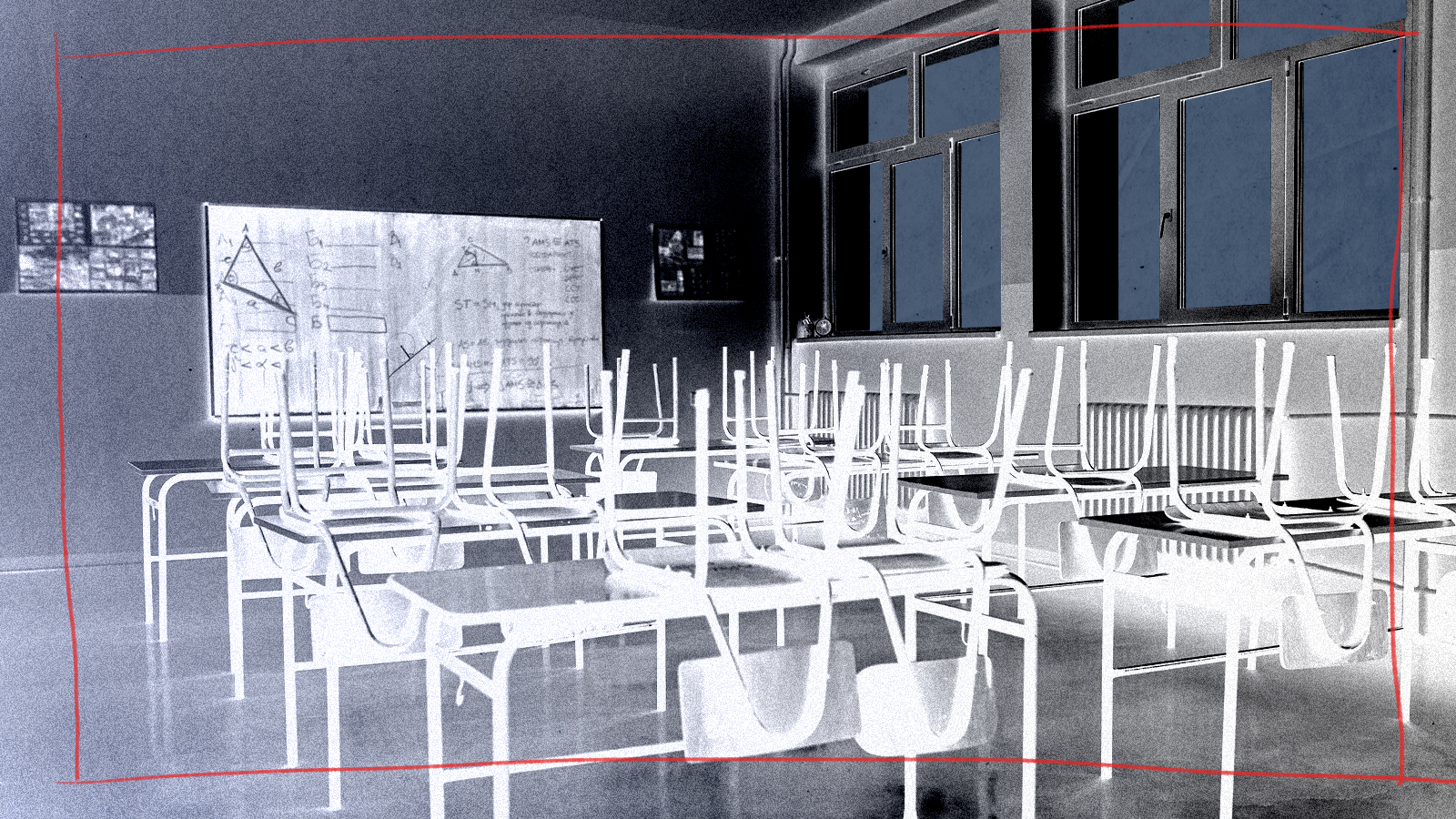Are public schools at risk of a death spiral?


A free daily email with the biggest news stories of the day – and the best features from TheWeek.com
You are now subscribed
Your newsletter sign-up was successful
Last month, my local school district decided — suddenly, on short notice, and over the objections of many parents — to lengthen Thanksgiving break from a few days to a full week. Families were given just a handful of days to make childcare arrangements for the unexpected extra vacation.
School officials acknowledged the pain, but inisisted extra time off was needed for educators suffering from high rates of burnout: A number of teachers had quit after the school year had begun, leaving administrators scrambling to cover their classes. "The attempt is to try to prevent more teachers from leaving the profession and trying to prevent that breaking point," said the district's superintendent.
But teachers aren't the only ones dealing with burnout, and this kind of thing is happening all over. If it keeps up, it might end up wrecking America's public school system.
The Week
Escape your echo chamber. Get the facts behind the news, plus analysis from multiple perspectives.

Sign up for The Week's Free Newsletters
From our morning news briefing to a weekly Good News Newsletter, get the best of The Week delivered directly to your inbox.
From our morning news briefing to a weekly Good News Newsletter, get the best of The Week delivered directly to your inbox.
The New York Times reports that schools across the country are reducing in-person classroom time. Detroit's schools are closed on Fridays, with only remote instruction offered. The same thing is happening in the suburbs of Salt Lake City. And schools in Seattle and Florida also extended their Thanksgiving breaks. As in my district, many of these reductions in classroom time are a reaction to pandemic-fueled teacher attrition. "What you hear from teachers is that it's been too much," said Randi Weingerten, who heads the American Federation of Teachers. "And they're trying the best that they can."
Even schools that stay open are running into trouble. Last month, parents in a Minnesota school district protested after discovering their kids were being forced to eat lunch outside in cold temperatures as a COVID mitigation method. On Wednesday, New York Times columnist Michelle Goldberg tweeted that children in her daughter's school were largely being forced to do the same — and that the vaxxed kids allowed to eat inside weren't allowed to talk to each other.
The potential for backlash here is obvious. Glenn Youngkin's recent win in Virginia's gubernatorial race, a largely unanticipated victory for Republicans, was partly driven by parental anger over COVID-driven school closures. The real risk isn't that Democrats will lose elections, however, but that families will look for alternatives to public schools, sending some districts into a death spiral. There are signs that has already started: Private schools — which tended to remain open during the first year of the pandemic — have seen their enrollments rise.
Families with fewer resources may soon get to join the rush: Supreme Court justices indicated Wednesday they're prepared to rule that states which already make some funds available for kids who go to nonsectarian private schools must do the same for families who choose religious schools. That prospect makes progressives angry, but it suggests many parents will soon have expanded educational options.
A free daily email with the biggest news stories of the day – and the best features from TheWeek.com
Options can be good, but public schools have deservedly been called "America's greatest success story." Right now they're struggling. The danger is that those struggles will send families fleeing and that success will be no more.
Joel Mathis is a writer with 30 years of newspaper and online journalism experience. His work also regularly appears in National Geographic and The Kansas City Star. His awards include best online commentary at the Online News Association and (twice) at the City and Regional Magazine Association.
-
 The ‘ravenous’ demand for Cornish minerals
The ‘ravenous’ demand for Cornish mineralsUnder the Radar Growing need for critical minerals to power tech has intensified ‘appetite’ for lithium, which could be a ‘huge boon’ for local economy
-
 Why are election experts taking Trump’s midterm threats seriously?
Why are election experts taking Trump’s midterm threats seriously?IN THE SPOTLIGHT As the president muses about polling place deployments and a centralized electoral system aimed at one-party control, lawmakers are taking this administration at its word
-
 ‘Restaurateurs have become millionaires’
‘Restaurateurs have become millionaires’Instant Opinion Opinion, comment and editorials of the day
-
 Big-time money squabbles: the conflict over California’s proposed billionaire tax
Big-time money squabbles: the conflict over California’s proposed billionaire taxTalking Points Californians worth more than $1.1 billion would pay a one-time 5% tax
-
 Supreme Court upholds California gerrymander
Supreme Court upholds California gerrymanderSpeed Read The emergency docket order had no dissents from the court
-
 Did Alex Pretti’s killing open a GOP rift on guns?
Did Alex Pretti’s killing open a GOP rift on guns?Talking Points Second Amendment groups push back on the White House narrative
-
 Washington grapples with ICE’s growing footprint — and future
Washington grapples with ICE’s growing footprint — and futureTALKING POINTS The deadly provocations of federal officers in Minnesota have put ICE back in the national spotlight
-
 Trump’s Greenland ambitions push NATO to the edge
Trump’s Greenland ambitions push NATO to the edgeTalking Points The military alliance is facing its worst-ever crisis
-
 Why is Trump threatening defense firms?
Why is Trump threatening defense firms?Talking Points CEO pay and stock buybacks will be restricted
-
 The billionaires’ wealth tax: a catastrophe for California?
The billionaires’ wealth tax: a catastrophe for California?Talking Point Peter Thiel and Larry Page preparing to change state residency
-
 How robust is the rule of law in the US?
How robust is the rule of law in the US?TODAY’S BIG QUESTION John Roberts says the Constitution is ‘unshaken,’ but tensions loom at the Supreme Court
